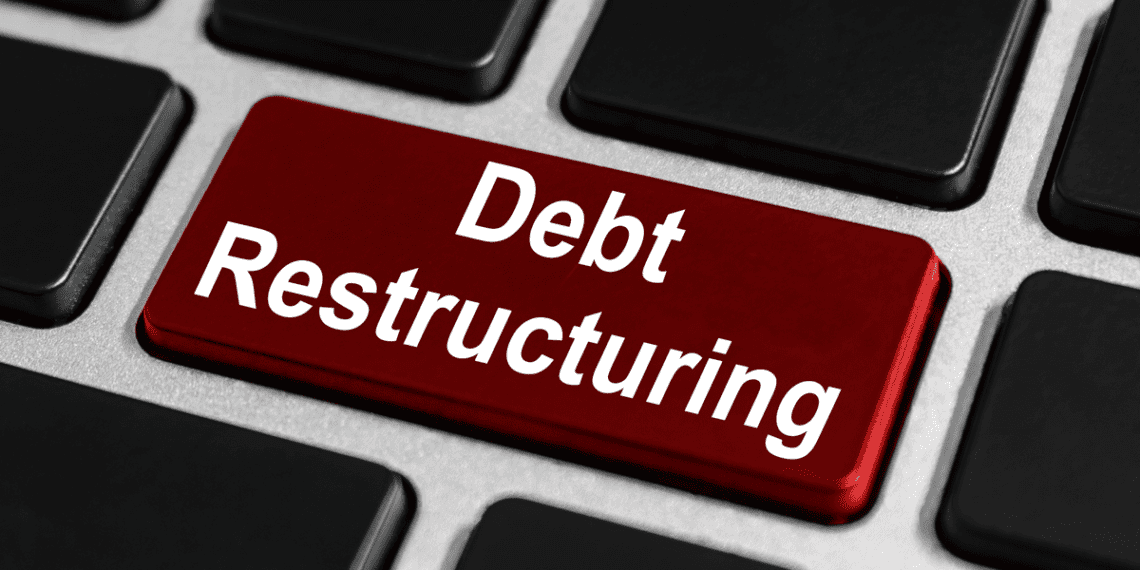In the intricate dance of economic recovery, Ghana finds itself at a crucial juncture, teetering on the edge of progress and potential setback. PricewaterhouseCoopers Ghana (PwC), a reputable auditing and tax firm, has sounded a warning in its 2024 Budget Digest, highlighting the pivotal role of expeditious external debt restructuring negotiations in ensuring the sustainability of Ghana’s economic rebound.
Ghana’s economic landscape has witnessed positive transformations, evident in several key indicators. Headline inflation has plummeted by almost 1900 basis points, sliding from a staggering 54.1% to a more manageable 35.2%.
The stability of the currency has been bolstered by revived economic activity, an improved current account position, and enhanced forex liquidity, partly attributed to the support from the International Monetary Fund (IMF).
Investor confidence has rebounded, and the central bank’s gross international reserve has experienced a notable uptick. Additionally, successful debt treatment exercises have led to a commendable reduction in the public debt-to-GDP ratio, from 73.1% at the close of 2022 to 66.4% in September 2023.
Despite these macroeconomic triumphs, a deeper examination reveals underlying challenges that cast a shadow over the overall economic narrative. PwC draws attention to the banking sector, where after-tax profits have surged by 43.8%, reaching GH¢6.2 billion.
However, the report raises a critical question: at what cost has this growth been achieved? The Bank of Ghana’s Monetary Policy Committee (MPC) report from September 25, 2023, exposes a stark contrast in the growth rates of private sector credit.
The annual growth rate of private sector credit over the 12 months leading up to August 2023 stands at 10.7%, a significant decline from the robust 35.8% witnessed during the equivalent period in 2021–2022. In real terms, private sector credit has contracted by 21%, a sharp reversal from the 1.4% growth recorded in the corresponding prior period.
“The Bank of Ghana’s Monetary Policy Committee (MPC) observed in their September 25, 2023, report that the annual growth rate of private sector credit over the 12 months up to August 2023 was 10.7 per cent compared to 35.8 per cent over the 2021–2022 equivalent period.”
PwC
The Crucial Role of Debt Restructuring
PwC’s alarm centers around the potential ramifications of delayed external debt restructuring negotiations. The report emphasizes that failure to conclude these negotiations promptly could trigger anxiety within the investor community and financial markets. This, in turn, might prompt international rating agencies to further downgrade Ghana’s bond ratings, potentially pushing it into junk credit territory.
Swift and effective external debt restructuring is presented as the linchpin for sustaining Ghana’s economic recovery. The report underlines that the longer the negotiations linger, the greater the likelihood of unsettling the delicate balance achieved in macroeconomic indicators. The specter of stalling economic recovery looms large, and stakeholders must act decisively to navigate these treacherous waters.
As Ghana strives to consolidate its economic gains and build a resilient future, the urgency of resolving external debt restructuring negotiations cannot be overstated. PwC’s cautionary note serves as a timely reminder that while macroeconomic successes paint a promising picture, the microeconomic challenges demand meticulous attention.
The path forward requires a delicate equilibrium between celebrating achievements and addressing vulnerabilities, with the focal point being the swift and judicious resolution of external debt issues. In navigating these complexities, Ghana stands at a crossroads, where decisive actions will determine the trajectory of its economic recovery.
READ ALSO: Access Bank Ghana Receives Prestigious SSI Awards for Exemplary Commitment to Sustainability




















